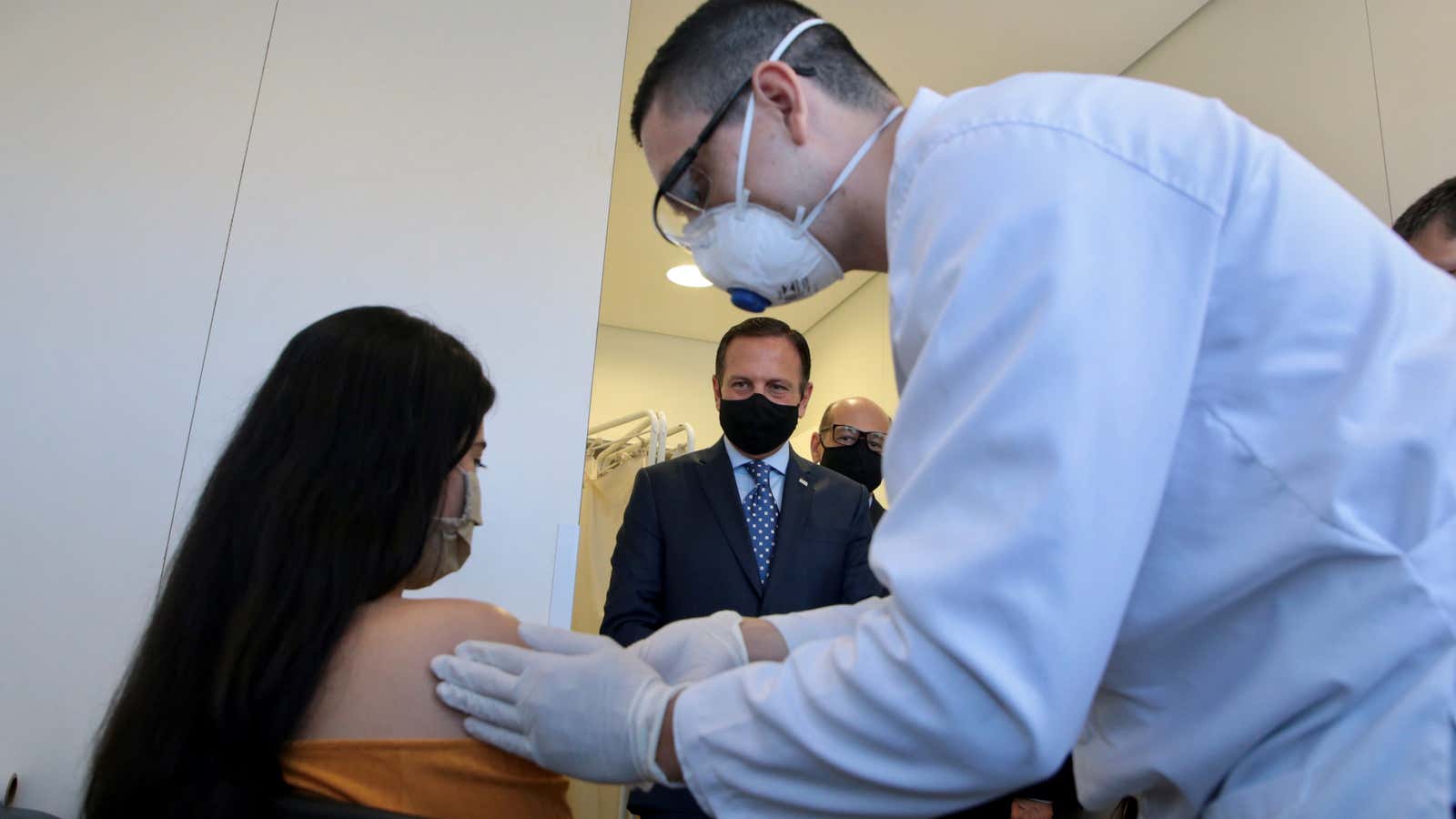Researchers and pharmaceutical companies around the globe are racing to find an effective coronavirus vaccine. Speed is important. An immunization is likely necessary for any significant return to normality.
One of the frontrunners, a combined effort of Oxford and AstraZeneca, published data this week showing the shot it’s testing has yet to show severe side effects and it induces the main types of immune response. CanSino also revealed similar findings for its own potential vaccine this week.
So, is it good to go? Not yet. Oxford’s candidate needs to complete its most time-intensive trials, the third phase, which will run concurrently with second phase trials. But the Oxford group still says they plan to have a vaccine ready for mass production as soon as September—whether or not it’s approved by health authorities.
The hunt for a Covid-19 immunization has followed an a-typical path. It has the hallmarks of traditional vaccine development—research, pre-clinical tests, then phased human trials—but at a breakneck pace, and by combining trials in untraditional ways. Traditionally, vaccine development takes over a decade, and that’s not including the initial research.
The Oxford group has already begun their phase 3 trials on thousands of people in the UK, Brazil, and South Africa. In August it will begin similar trials on 30,000 people in the US.
